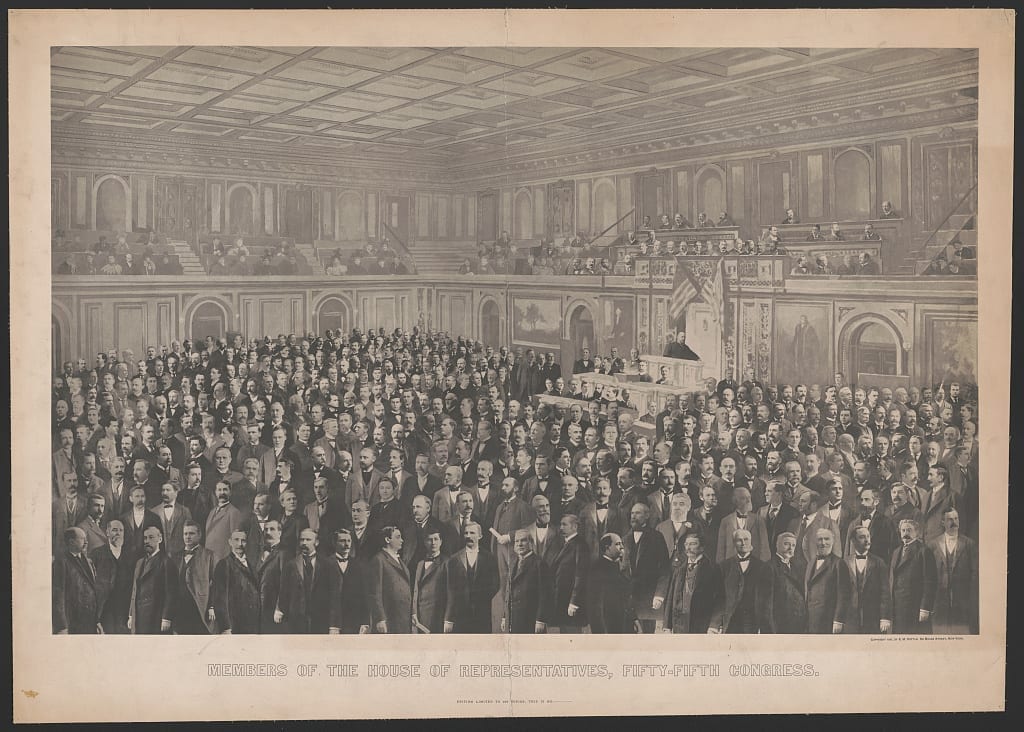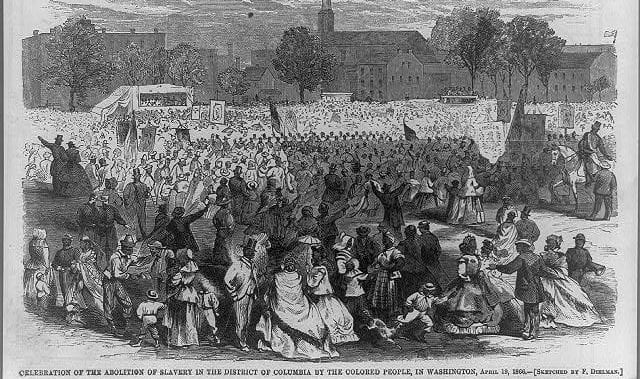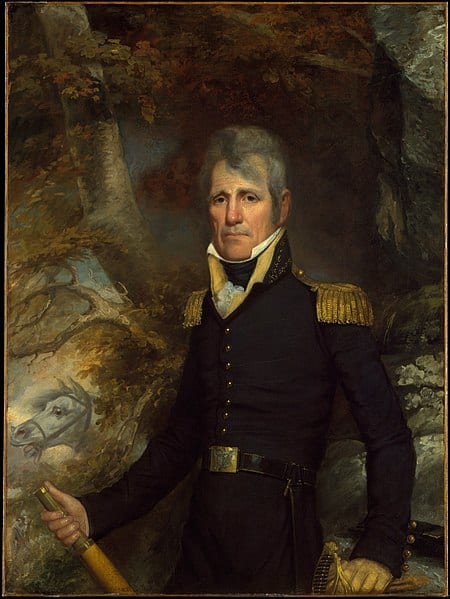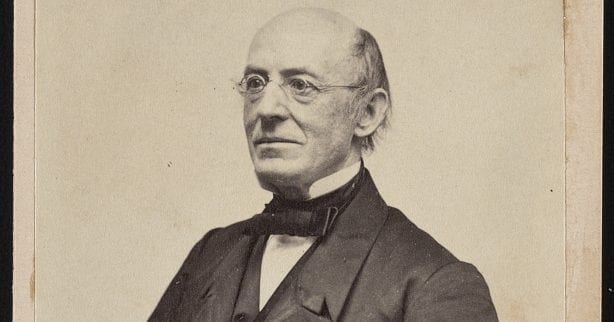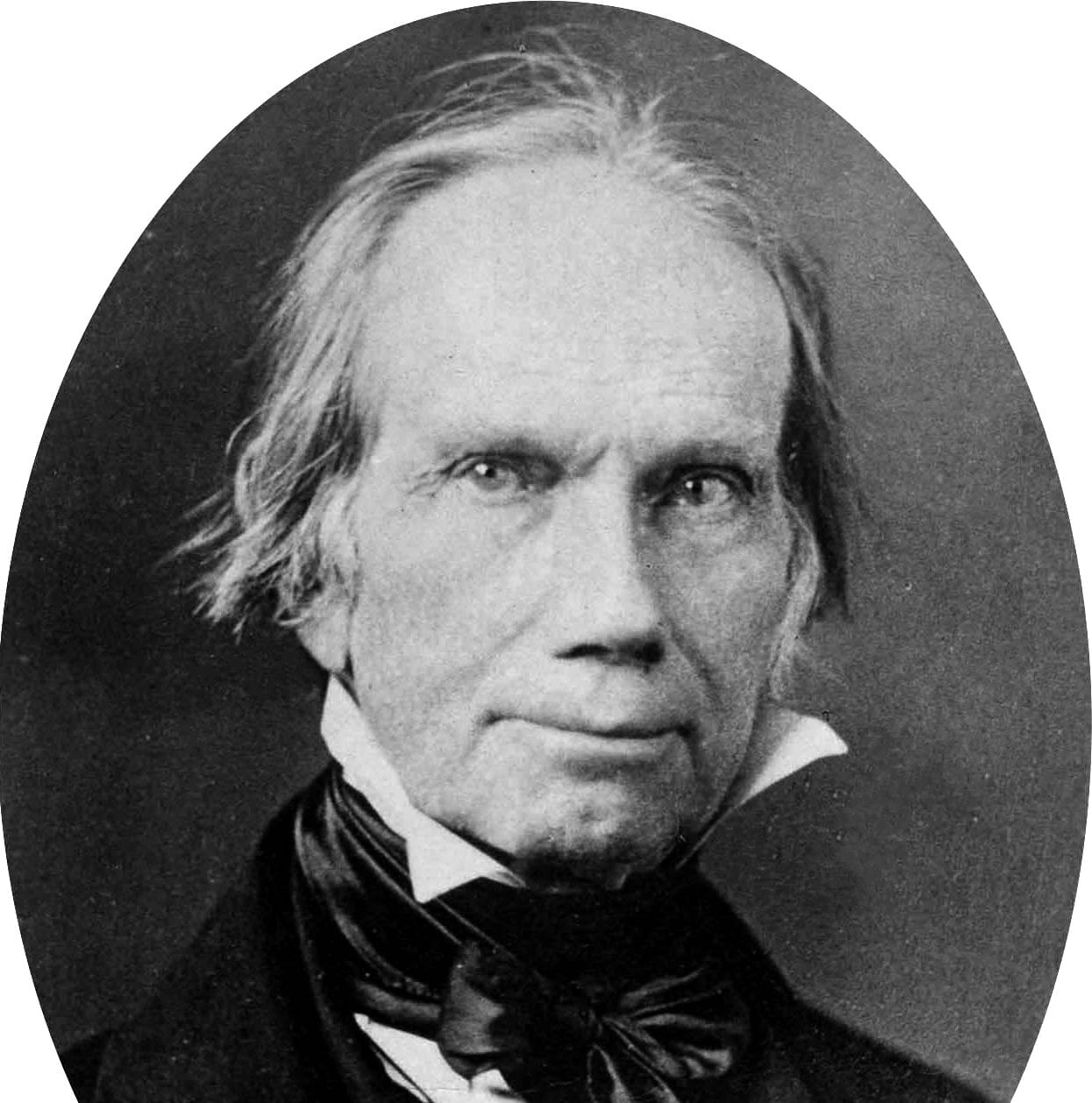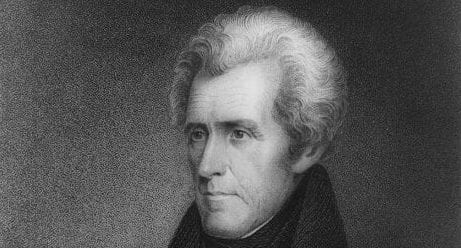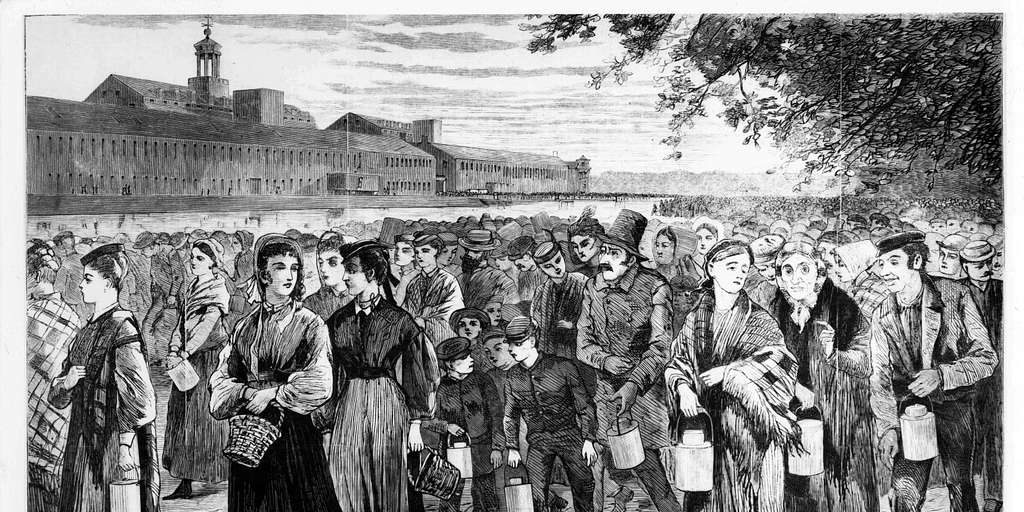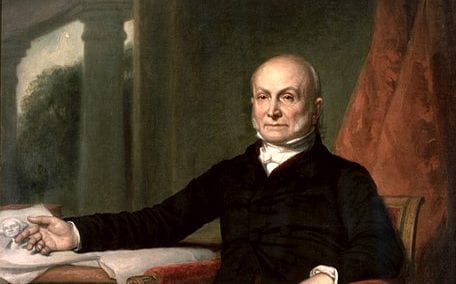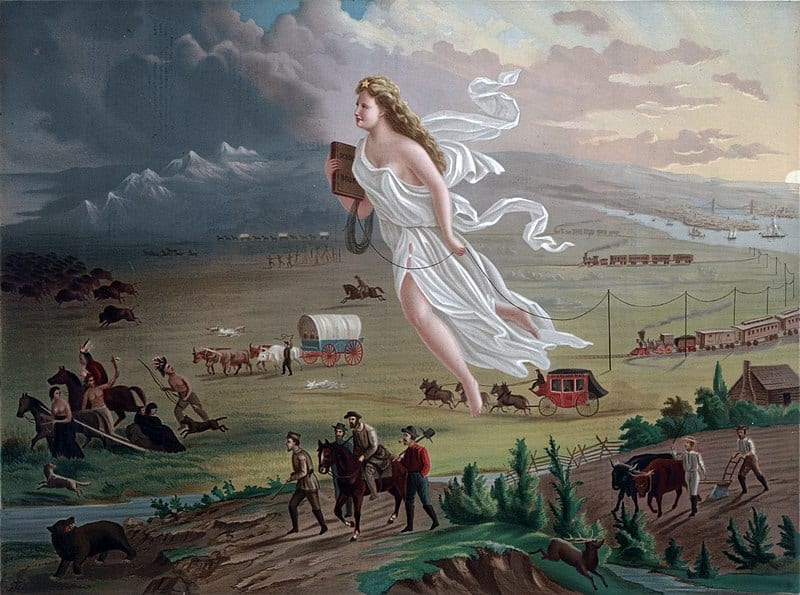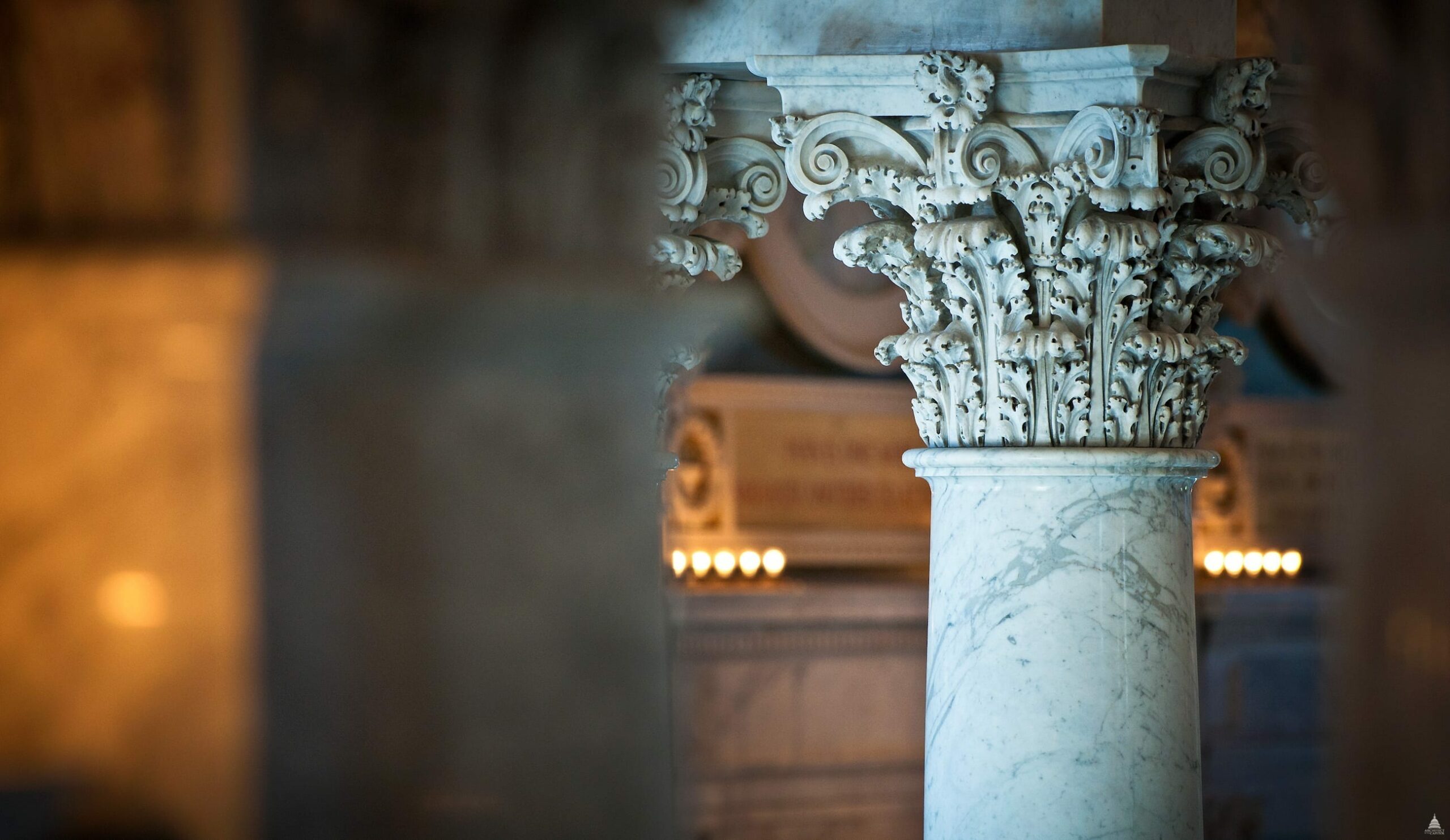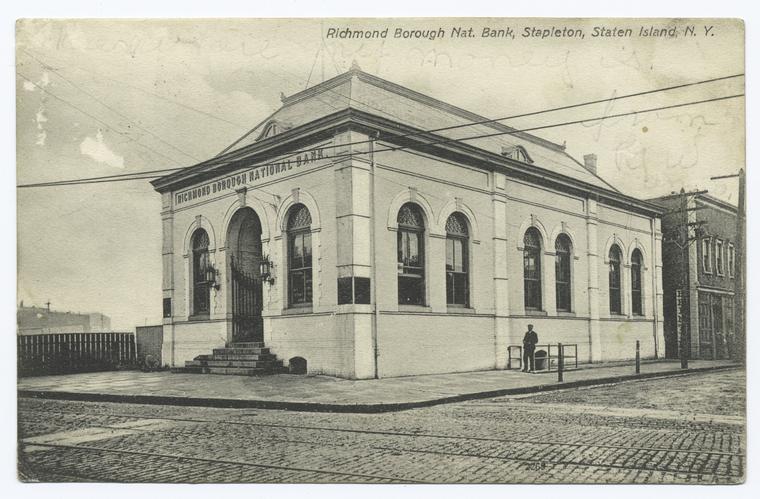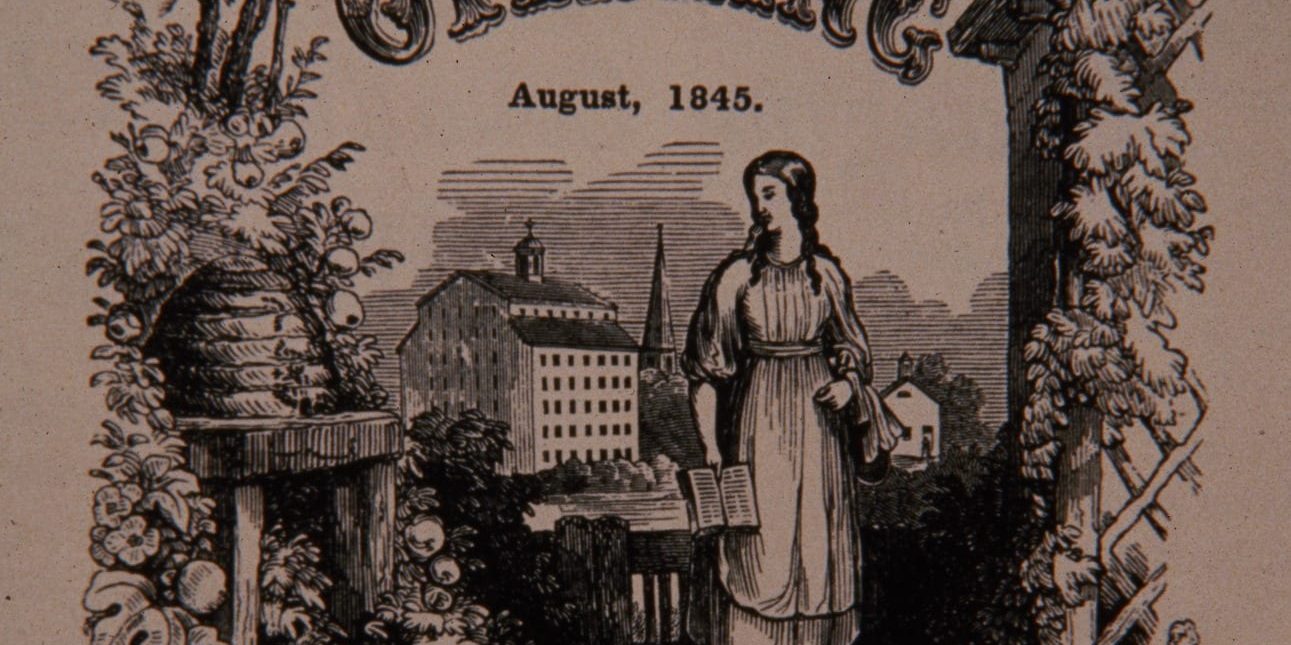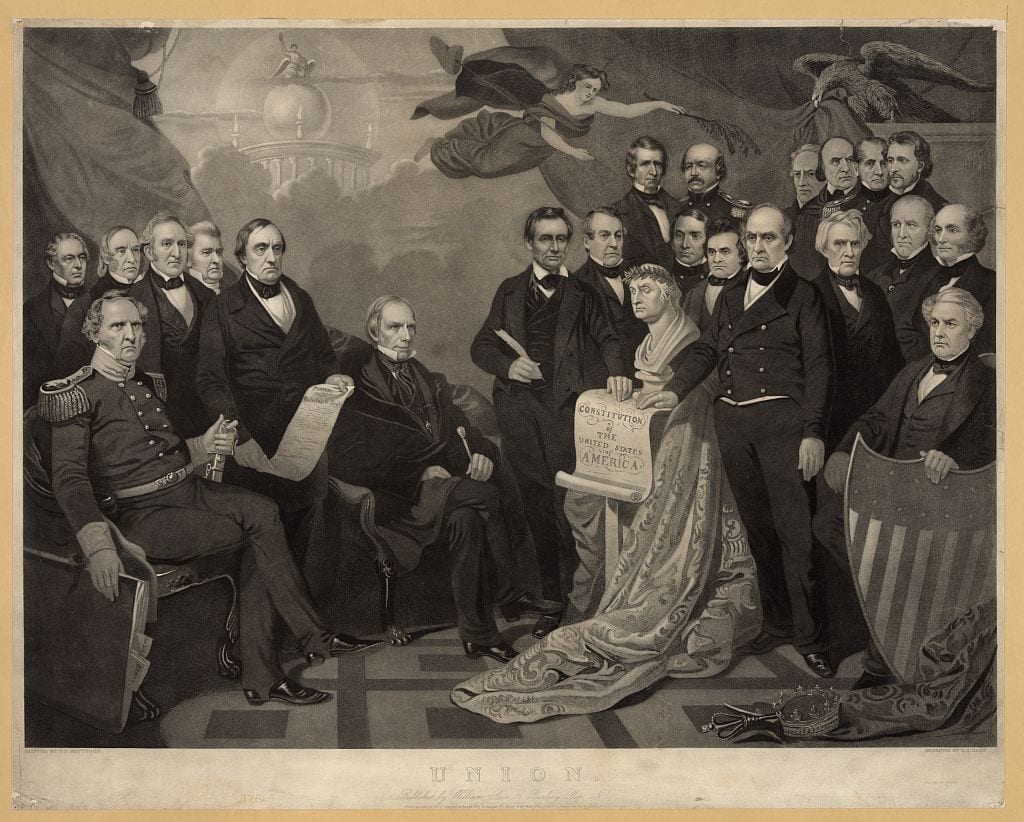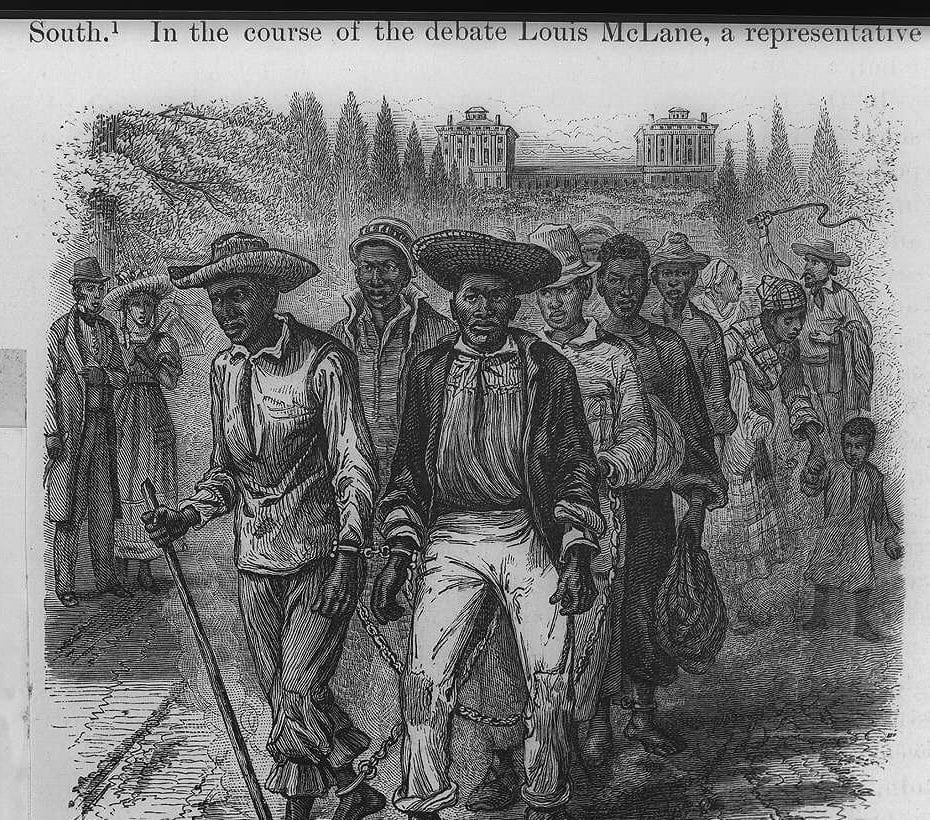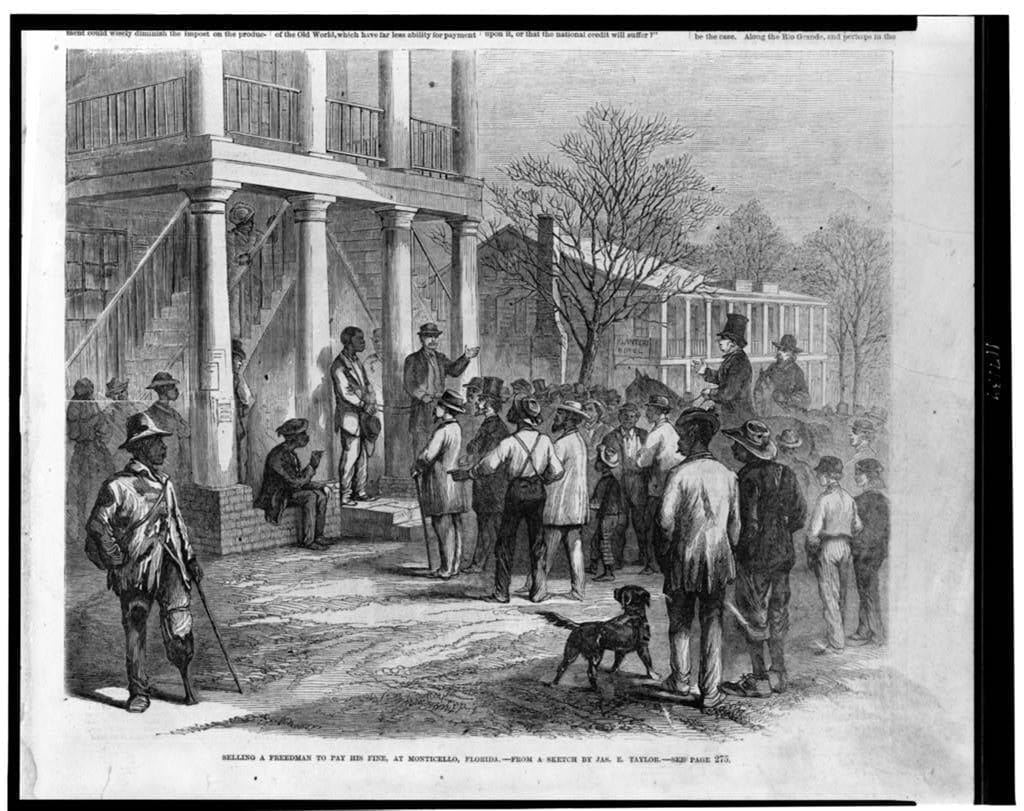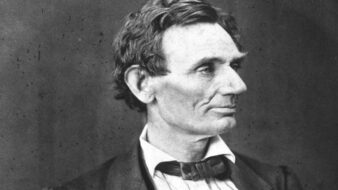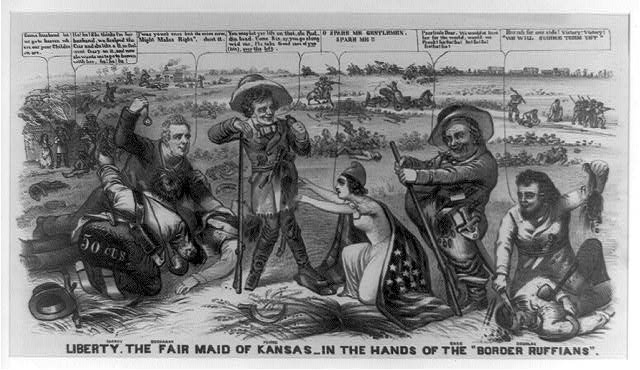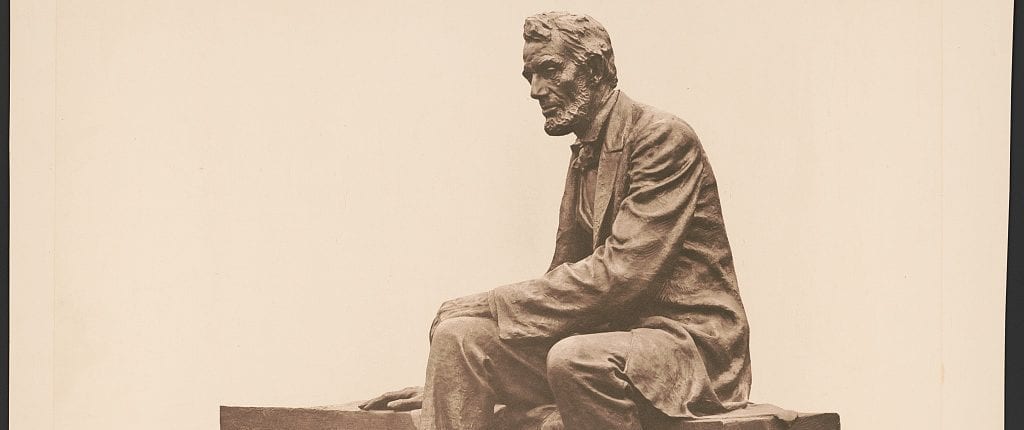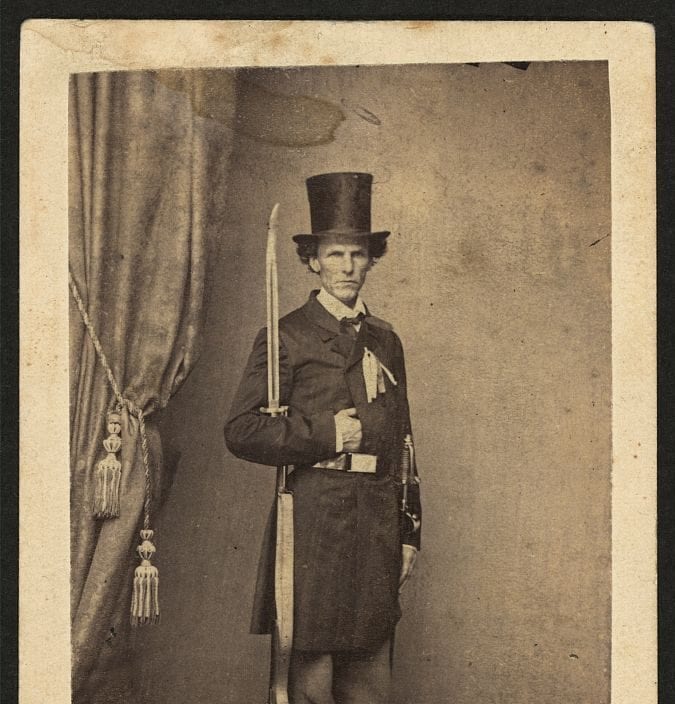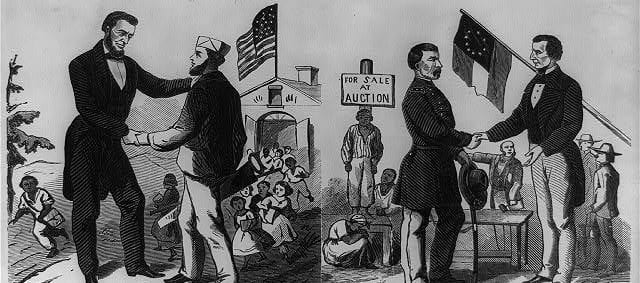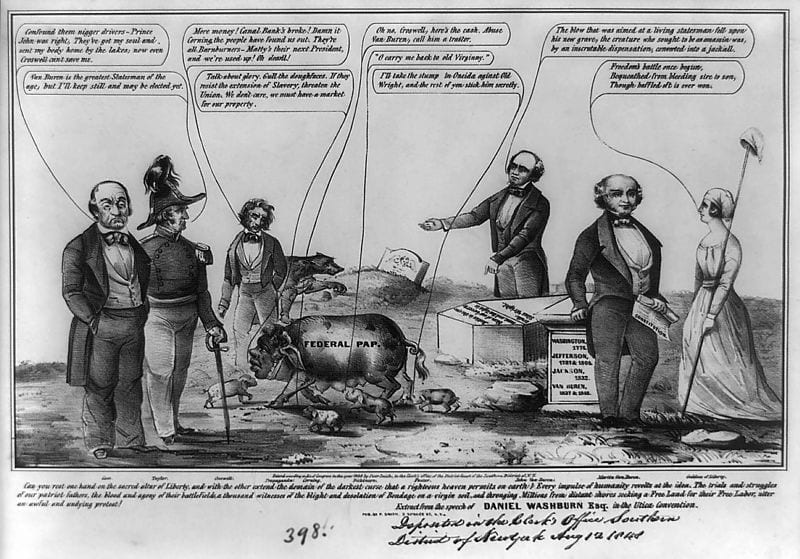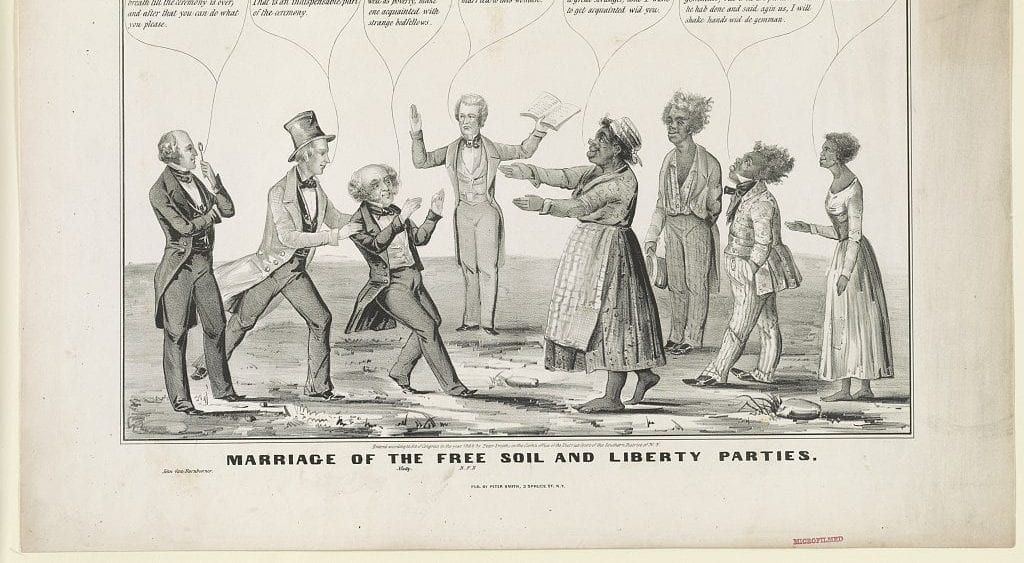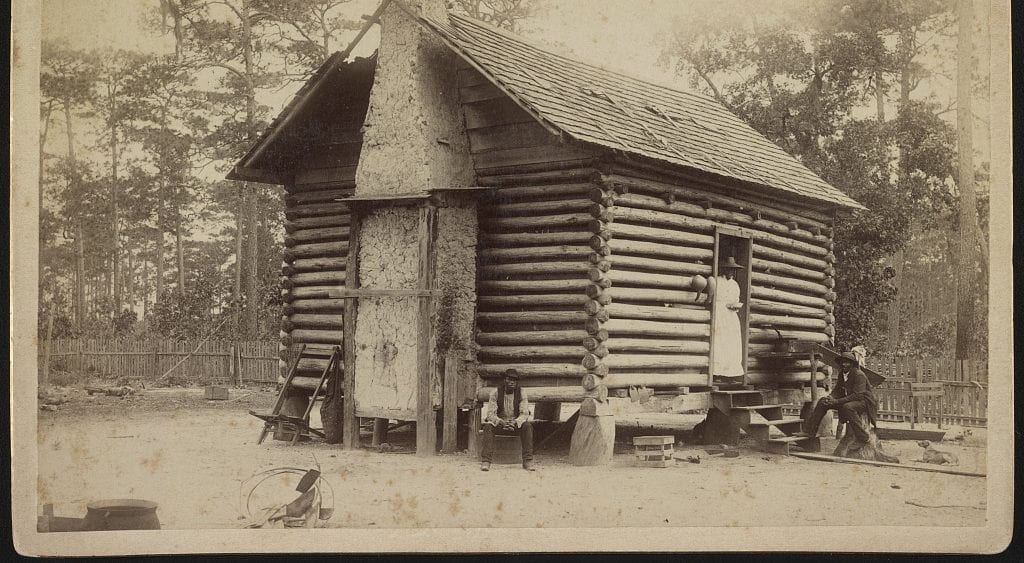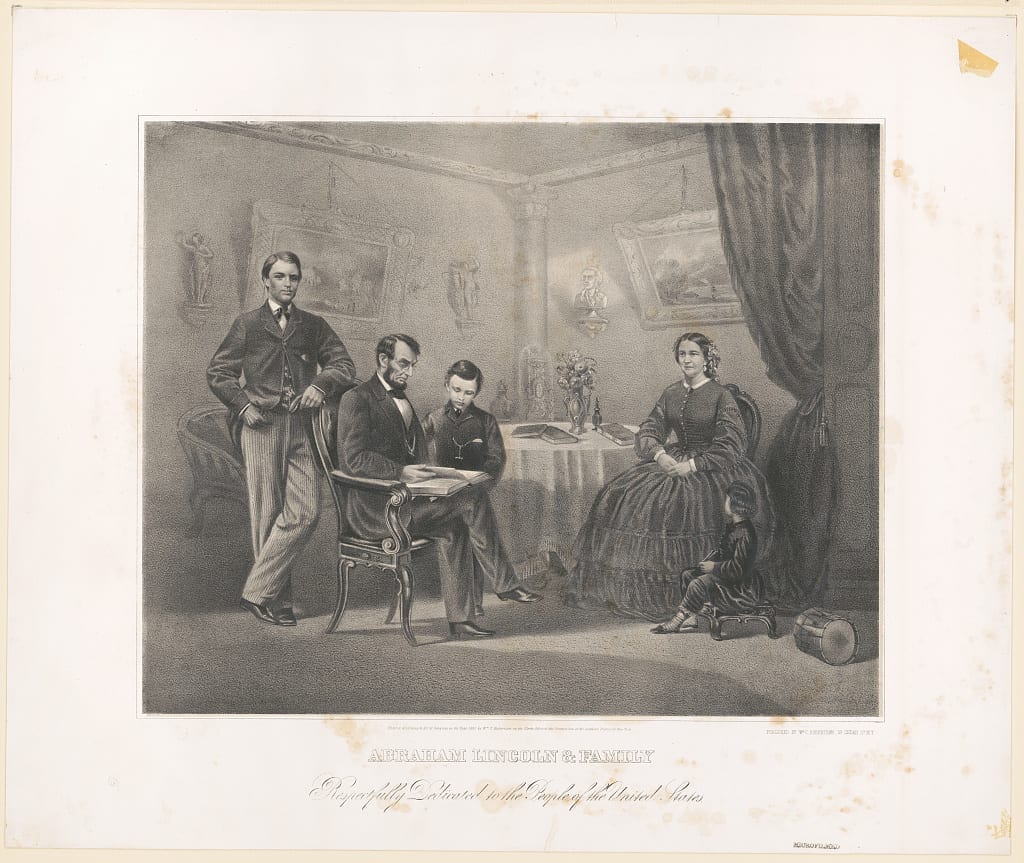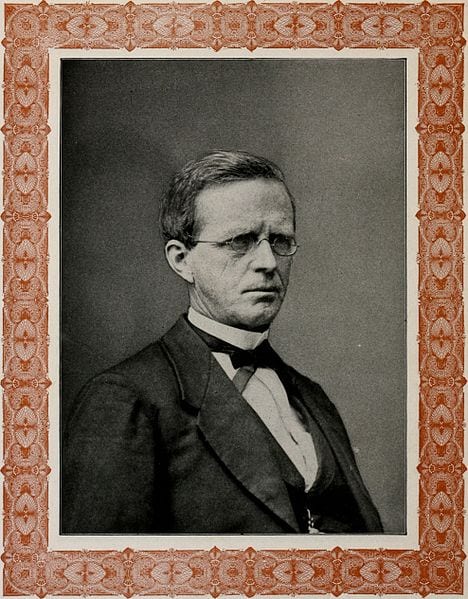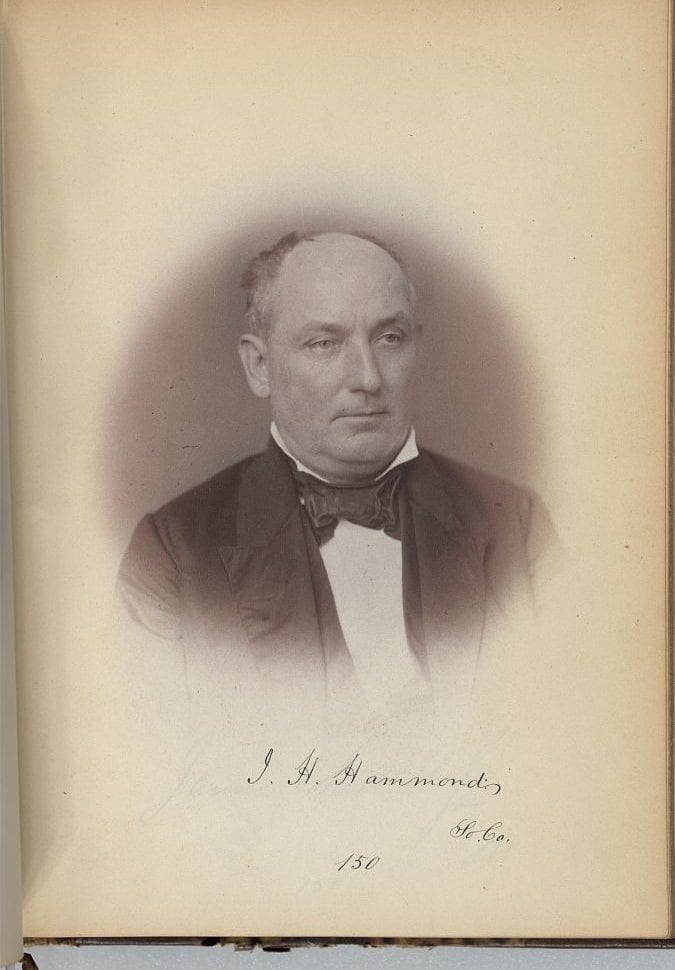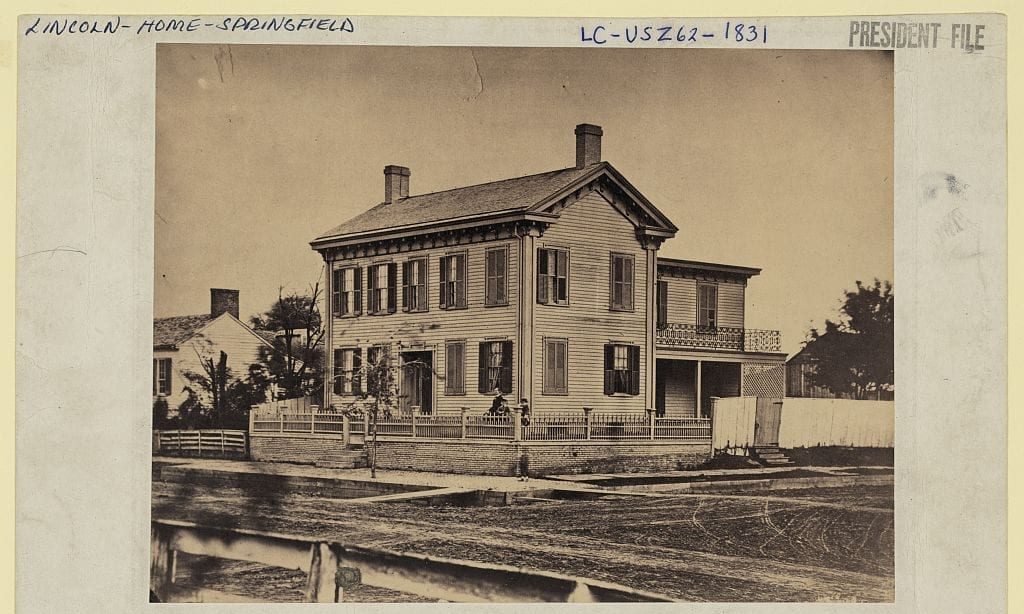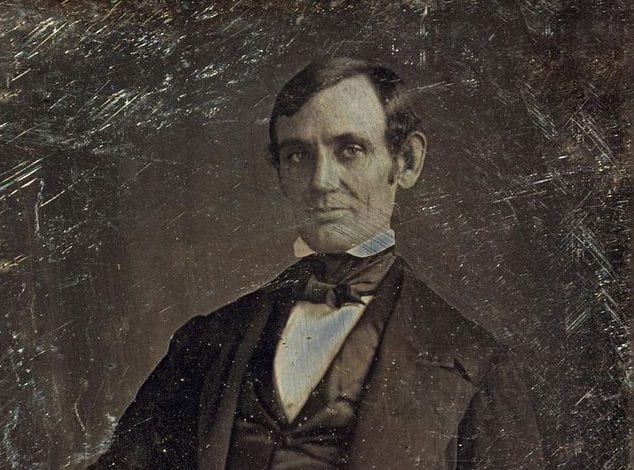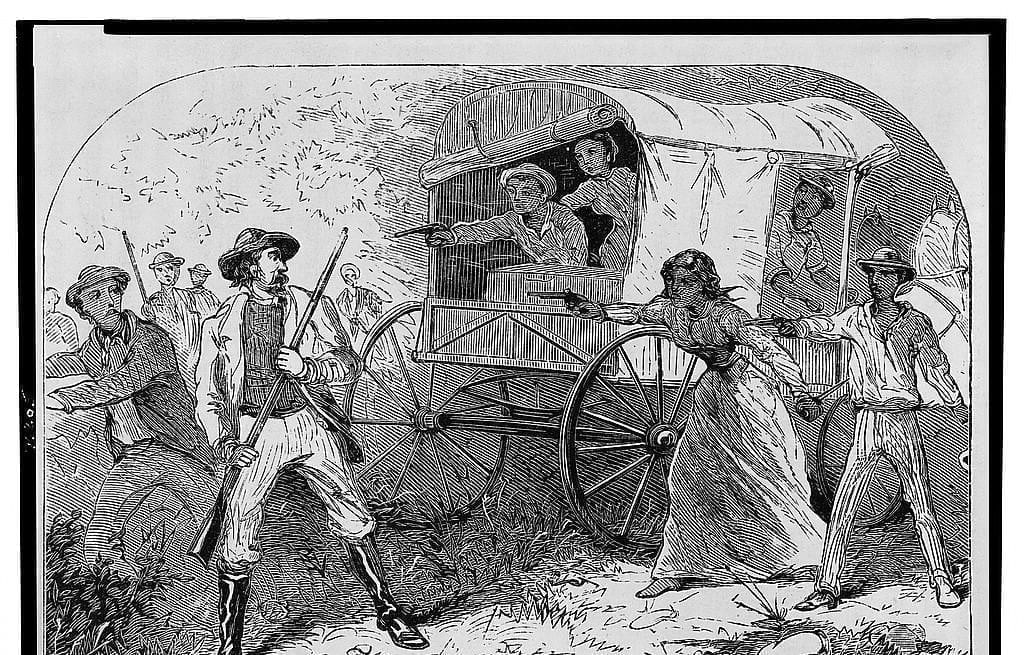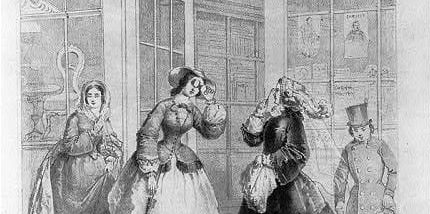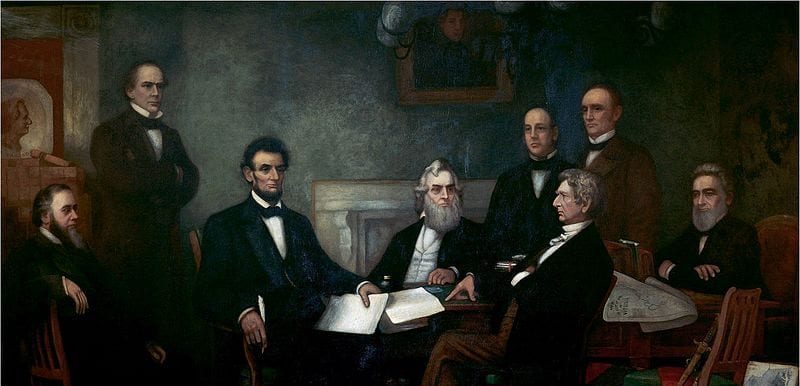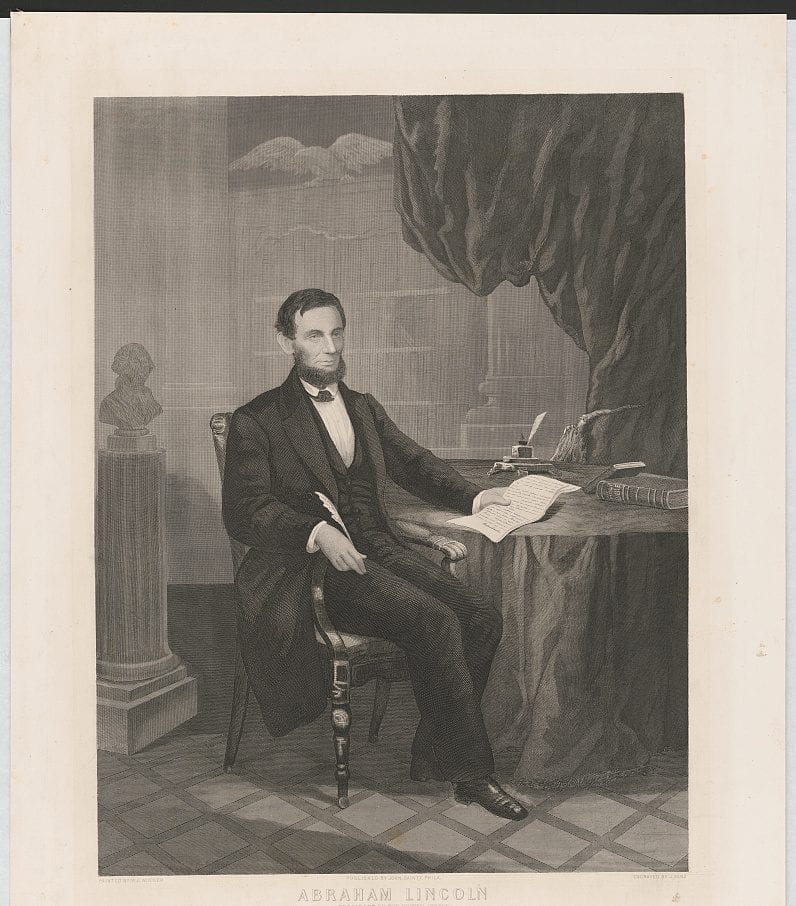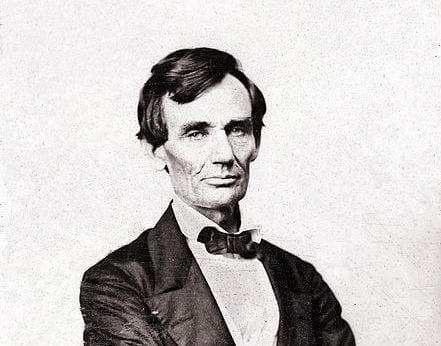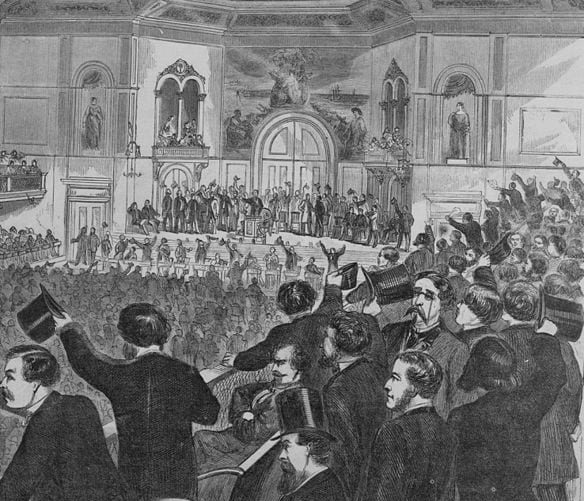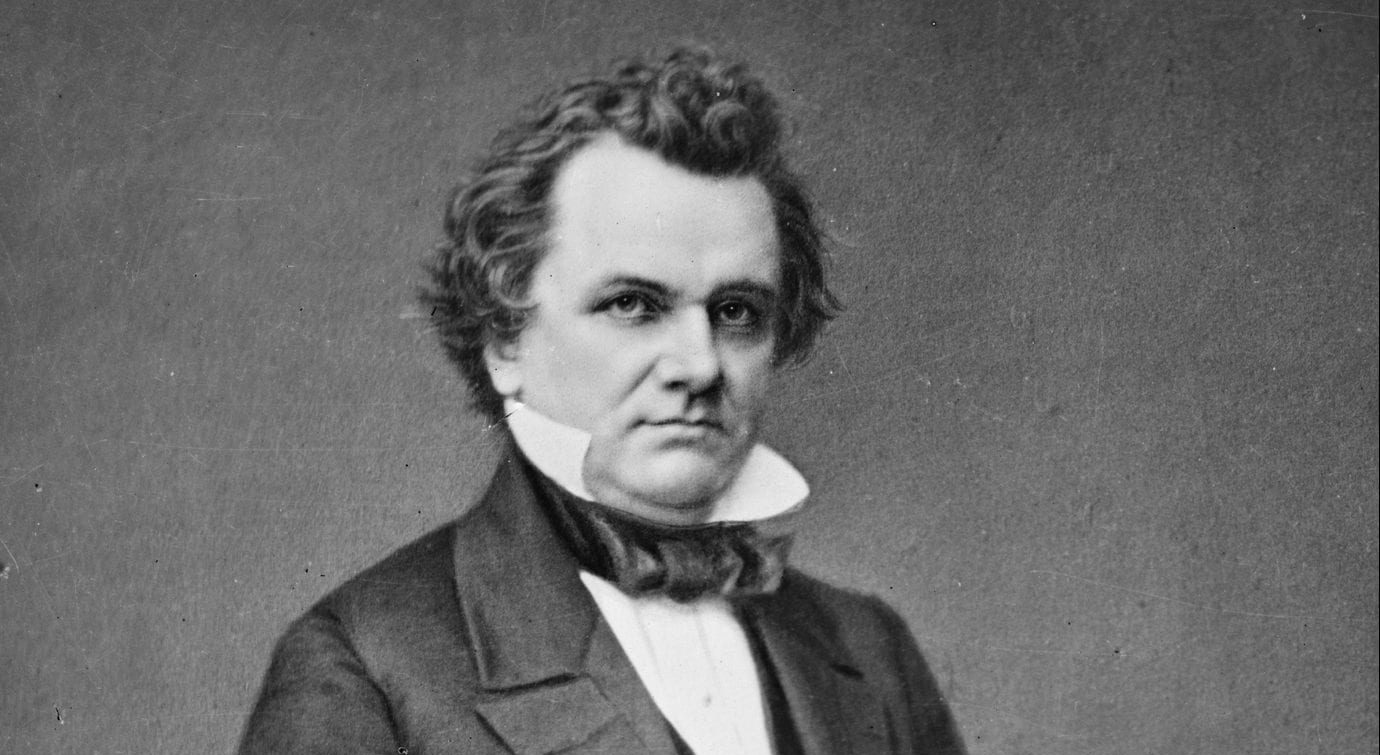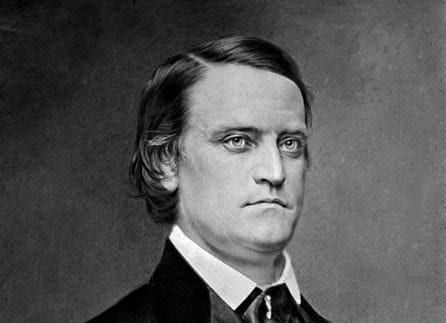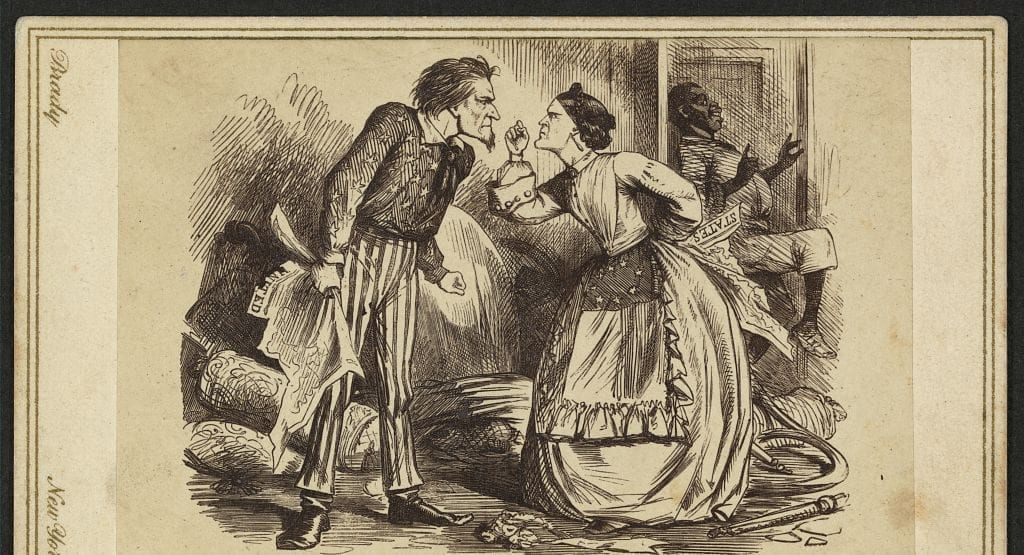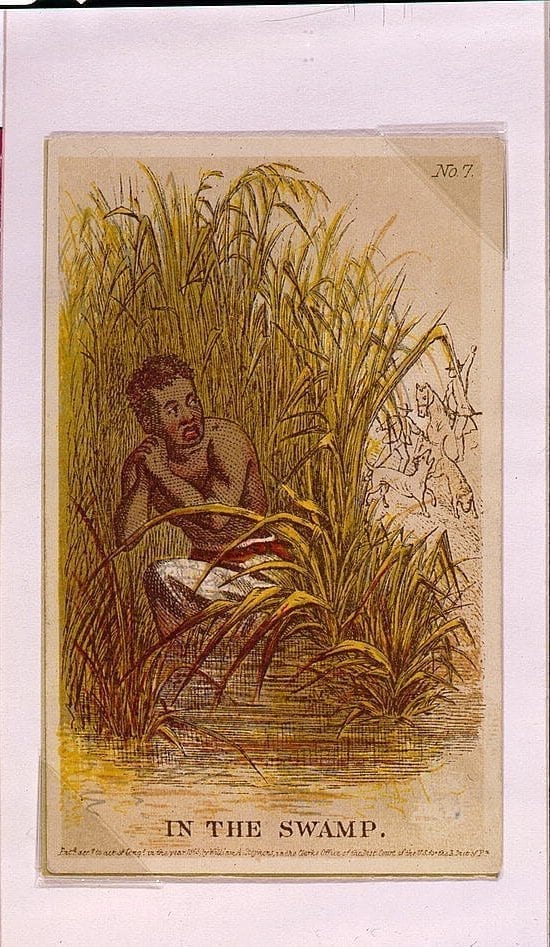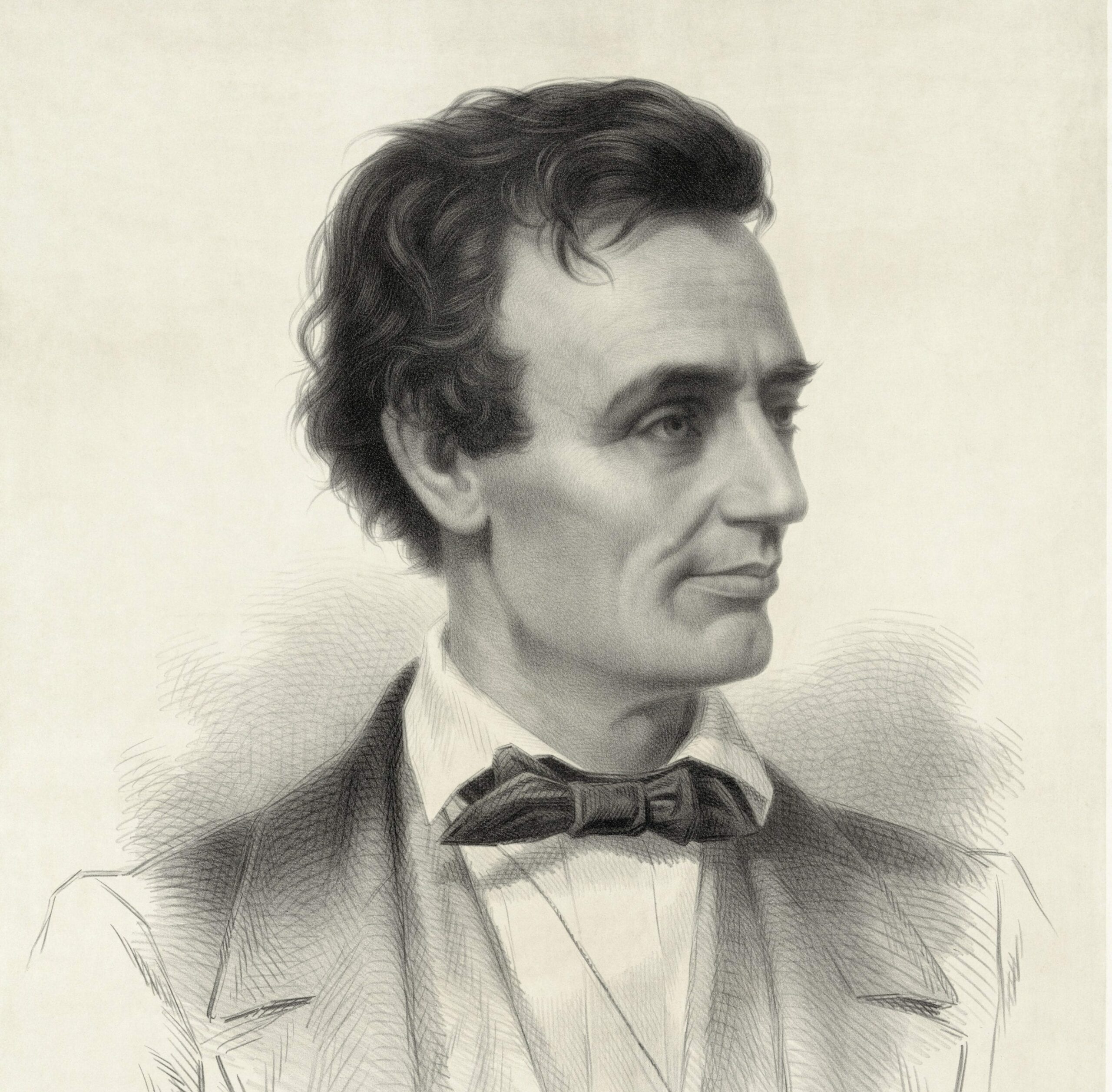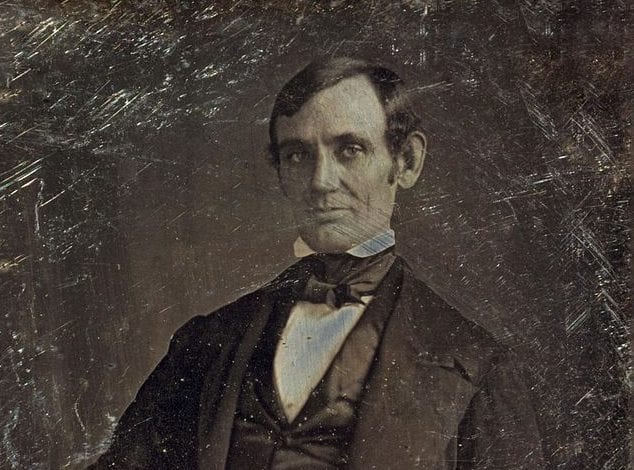…. The President then read the first regular toast: “1st THE UNION — The North will maintain it — the South will not depart therefrom”
Hon. Abram Lincoln of Springfield, amid most deafening cheers, arose to reply to this toast. He said he could most heartily indorse the sentiment expressed in the toast. During the whole canvass we had been assailed as the enemies of the Union, and he often had occasion to repudiate the sentiments attributed to us. He said that the Republican party was the friend of the Union. [Cheers.] It was the friend of the Union now; and if it had been entirely successful, it would have been the friend of the Union more than ever, [Loud and long continued cheers]. He maintained that the Liberty for which he contended could best be obtained by a firm, a steady adherence to the Union. As Webster said, “Not Union without liberty, nor liberty without Union; but Union and Liberty now and forever, one and inseparable.” [Loud Cheers.] The speaker said we had selected and elected a Republican State ticket. We have done what we supposed to be our duty. It is now the duty of those elected to give us a good Republican Administration. In regard to the Governor-elect, Col. Bissell, —[Loud and long-continued cheers and waving of handkerchiefs]—he referred to the opposite party saying that “he couldn’t take the oath.” Well, they said “he couldn’t be elected,” and as they were mistaken again. “They wouldn’t take such an oath!” Oh, no! [Laughter.] “They would cut off their right arm first.” He would like to know one of them who would not part with his right arm to have the privilege of taking the oath. Their conduct reminded him of the darky who, when a bear had put its head into the hole and shut out the daylight, cried out “What was darkening de hole?” “Ah,” cried the other darky, who was on to the tail of the animal, “if de tail breaks you’ll find out.” [Laughter and cheers.] Those darkies at Springfield see something darkening the hole, but wait till the tail breaks on the 1st of January, and they will see. [Cheers.] The speaker referred to the anecdote of the boy who was talking to another as to whether Gen. Jackson could ever get to Heaven. Said the boy “He’d get there if he had a mind to.” [Cheers and laughter.] So was it with Col. Bissell, —he’d do whatever he had a mind to. [Cheers.]
We have another annual Presidential Message. Like a rejected lover, making merry at the wedding of his rival, the President felicitates hugely over the late Presidential election. He considers the result a signal triumph of good principles and good men, and a very pointed rebuke of bad ones. He says the people did it. He forgets that the “people,” as he complacently calls only those who voted for Buchanan, are in a minority of the whole people, by about four hundred thousand voters — one full tenth of all the voters. Remembering this, he might perceive that the “Rebuke” may not be quite as durable as he seems to think — that the majority may not choose to remain permanently rebuked by that minority.
The President thinks the great body of us Fremonters, being ardently attached to liberty, in the abstract, were duped by a few wicked and designing men. There is a slight difference of opinion on this. We think he, being ardently attached to the hope of a second term, in the concrete, was duped by men who had liberty every way. He is in the cat’s paw. By much dragging of chestnuts from the fire for others to eat, his claws are burnt off to the gristle, and he is thrown aside as unfit for further use. As the fool said to King Lear, when his daughters had turned him out of doors, “He’s a shelled pea’s cod.”
So far as the President charges us “with a desire to change the domestic institutions of existing States;” and of “doing every thing in our power to deprive the Constitution and the laws of moral authority,” for the whole party, on belief, and for myself, on knowledge I pronounce the charge an unmixed, and unmitigated falsehood.
Our government rest in public opinion. Whoever can charge public opinion, can change the government, practically just so much. Public opinion, or [on?] any subject, always has a “central idea,” from which all its minor thoughts radiate. That “Central idea” in our political public opinion at the beginning was, and until recently has continued to be, “the equality of men.” And although it was always submitted patiently to whatever of inequality there seemed to be as matter of actual necessity, its constant working has been a steady progress towards the practical equality of all men. The late Presidential election was a struggle, by one party, to discard that central idea, may be the perpetuity of human slavery, and its extension to all countries and colors. Less than a year ago, the Richmond Enquirer, an avowed advocate of slavery, regardless of color, in order to favor his views, invented the phrase, “State equality,” and now the President, in his Message, adopts the Enquirer’s catch-phrase, telling us the people “have asserted the constitutional equality of each and all the States of the Union as States.” The President flatters himself that the new central idea is completely inaugurated; and so, indeed, it is, so far as the mere fact of a Presidential election can inaugurate it. To us it is left to know that the majority of the people have not yet declared for it, and to hope that they never will.
All of us who did not vote for Mr. Buchanan, taken together, are a majority of four hundred thousand. But, in the late contest we were divided between Fremont and Fillmore. Can we not come together, for the future. Let every one who really believes, and is resolved, that free society is not, and shall not be, a failure, and who can conscientiously declare that in the past contest he has done only what he thought best — let every such one have charity to believe that every other one can say as much. Thus let bygones be bygones. Let past differences, as nothing be; and with steady eye on the real issue, let us reinaugurate the good old “Central ideas” of the Republic. We can do it. The human heart is with us— God is with us. We shall again be able not to declare, that “all States as States, are equal,” nor yet that “all citizens as citizens are equal,” but to renew the broader, better declaration, including both these and much more, that “all men are created equal.”


















